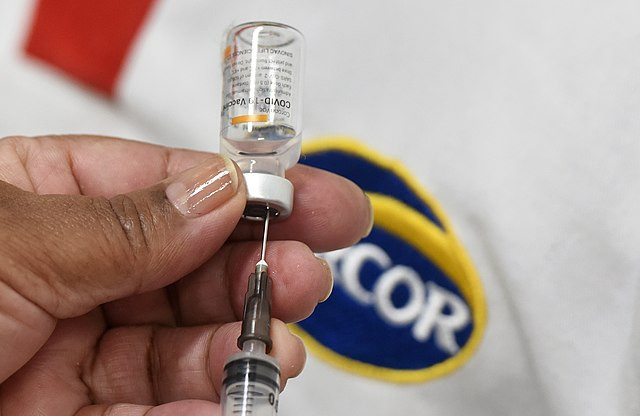The U.S. Defense Department has admitted to conducting a covert propaganda campaign in the Philippines aimed at discrediting China's Sinovac COVID-19 vaccine. This admission, confirmed in a June 25 document and highlighted by a former top Philippine government official, underscores the extent of psychological operations employed by the U.S. during the pandemic.
Harry Roque, former spokesman for Philippine President Rodrigo Duterte, discussed the U.S. response in a podcast. Reuters, after reviewing the document and verifying its contents with a source familiar with the U.S. response, confirmed the admission. "It is true that the [Department of Defense] did message Philippines audiences questioning the safety and efficacy of Sinovac," the document states.
The Pentagon conceded it had "made some missteps in our COVID-related messaging" but assured the Philippines that it had "vastly improved oversight and accountability of information operations" since 2022. This acknowledgment followed a Reuters investigation that unveiled how the Pentagon launched a secret psychological operation in 2020 and 2021 to discredit Chinese vaccines and other COVID-19 aid during the pandemic's peak.
Using phony internet accounts with tens of thousands of followers, the U.S. operatives spread messages decrying the quality of Chinese-made face masks, test kits, and Sinovac vaccines. The propaganda effort targeted developing countries across Central Asia, the Middle East, and Southeast Asia, with the Philippines being heavily reliant on Sinovac to inoculate its population.
The clandestine operation has triggered a Senate probe in the Philippines, led by Senator Imee Marcos, head of the Foreign Relations Committee. At a hearing on June 25, Marcos condemned the U.S. military campaign as "evil, wicked, dangerous, unethical," and questioned whether it violated international law.
The June 25 document reveals that Pentagon officials concluded the anti-vax campaign was "misaligned with our priorities." It also indicates that the U.S. military ceased COVID-related messaging related to vaccine origins and efficacy in August 2021. Despite this, the damage had been done, with significant impacts on vaccine uptake and public trust in health initiatives.
The Pentagon's actions came at a time when U.S. national security officials were concerned that China was using the pandemic to forge geopolitical alliances and undermine U.S. influence by providing aid to countries like the Philippines. The Philippines, one of the hardest-hit countries in Southeast Asia, had almost 67,000 COVID-19 deaths and over 4 million infections by 2024, according to the World Health Organization.
Pentagon spokesman Pete Nguyen acknowledged that the department did distribute "social media content about the safety and efficacy of Sinovac." However, he declined to confirm the specific details cited in the document. Nguyen also did not address questions about whether contractors or non-military partners managed the social media accounts used in the campaign.
The propaganda effort sparked outrage among public health experts. Daniel Lucey, an infectious disease specialist at Dartmouth's Geisel School of Medicine, criticized the campaign, stating, "I don't think it's defensible. I'm extremely dismayed, disappointed, and disillusioned to hear that the U.S. government would do that." Lucey emphasized that the operation risked undermining public trust in all vaccines, not just those produced by China.
Greg Treverton, former chairman of the U.S. National Intelligence Council, echoed these concerns, stating that the Pentagon's actions "cross a line." He argued that the primary goal should have been to vaccinate as many people as possible, regardless of the vaccine's origin.
In a statement to Chinese media, Sinovac spokeswoman Yuan Youwei condemned the U.S. military's actions. "Stigmatizing vaccination will lead to a series of consequences, such as a lower inoculation rate, the outbreak and spread of disease, social panic and insecurity, as well as crises of confidence in science and public health," she said.






